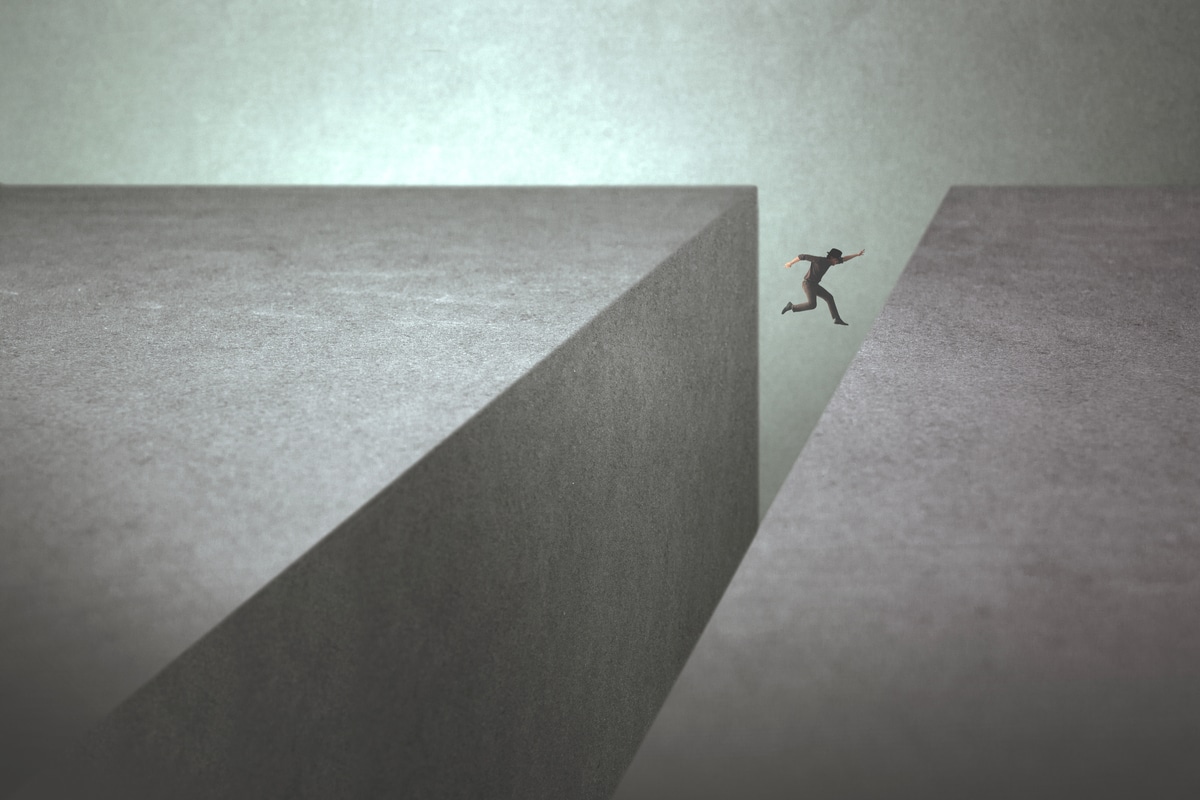We’ve all been there before. Someone has done something that hurt us deeply, and we can’t seem to let it go. We might even find ourselves obsessing over it, replaying the event repeatedly in our minds. This is what it feels like to hold onto hate.
Hate is a negative emotion that can have severe consequences for both the individual and society as a whole. It can lead to physical health problems, such as high blood pressure and increased stress levels. It can also lead to social problems, such as discrimination and violence.
So how do you let go of anger and bitterness? In this article, we’ll explore 15 proven tips to help you overcome hatred and resentment. We understand that it’s not always easy to let go of negative emotions, but we hope that these tips will be helpful in the healing process.
Let’s get started!
What Is Hate and Why Do We Feel It?
Hate is a strong word. It’s often used to describe intense feelings of dislike or hostility. We might hate someone because of the way they look, the way they talk, or the things they stand for. We might even hate them for no reason at all.
Hate is a natural human emotion. It’s normal to feel angry or resentful towards someone who has hurt us.
However, it’s important to remember that hate is a choice. We can choose to let go of our anger and move on, or we can choose to hold onto it and allow it to consume us.
Hate is a secondary emotion. This means it’s usually a response to another emotion, such as pain, hurt, or fear. For example, you might hate someone because they hurt your feelings or because you’re afraid of them.
There are many different reasons why people hate. Some people might hate because of past experiences, such as being bullied or abused. Others might hate because of their beliefs or values. And still, others might hate because they’re just naturally hateful people.
Whatever the reason, it’s important to remember that hate is a choice. We can choose to let it go, or we can choose to hold onto it. If we choose to hold onto it, we need to be aware of the consequences.
The Negative Effects of Hate on Both the Individual and Society
As we mentioned before, hate can have serious consequences for individuals and society. Let’s take a more in-depth look at some of these consequences.
On an individual level, hatred can lead to:
- Increased levels of stress and anxiety
- A weakened immune system
- Low self-esteem
- High blood pressure
- Heart disease
- Digestive problems
- Sleeping disorders
- Depression
In addition to the adverse effects on physical health, hate also takes a toll on mental and emotional well-being. When someone holds onto hate, they are living in the past and reliving a hurt over and over again. This can lead to feelings of bitterness, resentment, and even paranoia.
Hate also has negative consequences for society as a whole. When people hate, they might express their hatred through discriminatory or violent behaviours. This can lead to social unrest, division, and even war.
So, as you can see, hate is not a healthy emotion. It’s essential to find ways to let go of the negative feelings before they take a toll on your health, both physically and emotionally.
How Do You Let Go of Anger and Bitterness?
If you’re struggling to let go of hate, you’re not alone.
It’s normal to feel anger and resentment towards someone who has hurt you. In fact, hate crime statistics show that hate crimes are on the rise in England and Wales.
The good news is that there are ways to let go of hate. Here are 15 practical tips for healthily overcoming hatred and resentment.
1. Practice Forgiveness
This might seem like an impossible task, but forgiveness is a crucial part of letting go of anger. Forgiveness doesn’t mean you forget what happened or condone the person’s actions. It simply means that you’re willing to let go of the anger and resentment that you feel.
But how do you forgive someone who has hurt you? Start by asking yourself why you’re holding onto the anger. Is it because you want revenge? Or is it because you’re afraid to let go? Once you’ve identified the reason, you can start to work on forgiving the person.
Try to see things from their perspective. Why might they have acted the way they did? Was it because they were in a bad place themselves? Or was it because they didn’t know any better?
It’s also important to remember that you can as well forgive yourself. If you’re struggling to let go of self-hatred, try practising self-compassion. This means being kind and understanding towards yourself, even when you make mistakes.
Forgiveness is a process, and it might take time to let go of all the anger and resentment. But it’s important to keep working on it.
2. Focus on the Present Moment
When you’re struggling to let go of hate, it’s easy to get caught up in the past. You might find yourself dwelling on what happened and replaying the events repeatedly in your mind.
This can be harmful to your mental and emotional well-being. It’s important to focus on the present moment and live in the here and now.
One way to do this is to practice mindfulness. This involves paying attention to your thoughts and feelings in the present moment. It can help you become more aware of your thoughts and emotions and learn how to let go of the negative ones.
3. Challenge Your Negative Thoughts
If you’re struggling to let go of hate, you likely have some negative thoughts about the person who hurt you. These thoughts might be that the person is evil or that they deserve to be punished.
It’s essential to challenge these negative thoughts. Otherwise, they will continue to fuel your anger and resentment.
Ask yourself whether the thoughts are really true. For example, is the person really evil? Or are they just human and fallible like everyone else?
It might also be helpful to consider the person’s good qualities. This can help balance the negative thoughts and make them seem less one-dimensional.
If the negative thoughts are about you, it’s also important to challenge them. Are you really a bad person because you made a mistake? Or are you just human?
Asking yourself these questions can help to reduce the power that negative thoughts have over you.
4. Let Go of the Need for Revenge
Have you ever heard the saying, “revenge is a dish best served cold”? It’s often used to describe the feeling of satisfaction that comes from getting revenge on someone.
But in reality, revenge rarely brings satisfaction. In fact, it often makes the situation worse and causes you more pain.
I remember when I was in school, there was a boy who used to bully me. I dreamed of getting revenge on him and making him feel as bad as he had made me feel. But when I finally got the chance, I didn’t do it. And I realised that it would have only made things worse.
Getting revenge might feel satisfying at the moment, but it’s not going to help you let go of hate. In fact, it’s likely to make the situation worse.
It’s essential to let go of the need for revenge and focus on forgiving the person who hurt you.
5. Do Something Nice for the Person Who Hurt You
This might sound like a strange thing to do, but it can actually be beneficial. Doing something nice for the person who hurt you can help break down the walls of anger and resentment.
It might be something as simple as sending them a card or giving them a gift. Or it could be something more significant, like forgiving them for what they did.
Doing something nice for the person who hurt you is a powerful way to let go of hate. It can help you to see them in a different light and start to forgive them.
6. Write a Letter to the Person Who Hurt You
Writing a letter to the person who hurt you can be a helpful way to express your thoughts and feelings. It can also be therapeutic, as it can help you to let go of the anger and resentment you’re feeling.
You don’t have to send the letter if you don’t want to. But it can be helpful to write it out and get your thoughts down on paper.
7. Express Your Anger in a Journal Writing
Expressing your anger in a journal can be a helpful way to let go of it. It can also help you understand your anger and what might be causing it.
When you’re angry, it’s often because you feel like you’re not being heard or understood. Writing in a journal can help you to feel heard and understood.
It can also help you to process your anger constructively. You can write about what happened, how it made you feel, and how you want to handle the situation.
8. Take Deep Breaths
When you’re feeling angry or resentful, it’s important to take deep breaths. This can help calm your mind and body and prevent you from acting on your anger.
Taking a few deep breaths is a simple but effective way to let go of negative experiences. It can help you regain control of your emotions and avoid worsening the situation.
9. Focus on the Positive
When you’re struggling to let go of hate, focusing on the positive is essential. There are likely many good things in your life, even if the person who hurt you has made it difficult to see them.
Focusing on the positive can help you remember that there is more to life than the person who hurt you. It can also help you to see the situation in a more positive light.
10. Avoid Isolating Yourself
When struggling to let go of hate, it’s important to avoid isolating yourself. It’s easy to want to withdraw from the world and not talk to anyone.
But isolating yourself will only make things worse. It’s important to reach out to family and friends and talk to them about what’s going on. Your family member or that close friend can provide support and understanding.
11. Give Yourself Time
It’s important to give yourself time to heal. It’s not going to happen overnight, and that’s okay.
If your romantic partner is the one who hurt you, it’s important to give yourself time before getting back into a relationship. It’s also important to be honest with your partner about what you’re going through.
Letting go of the hate might take weeks, months, or even years. But eventually, with time and self-love, you will get there.
12. Practice Empathy
Yes, the person who hurt you was wrong. And you have every right to be angry. But it’s important to try and see things from their perspective.
Practising empathy doesn’t mean that you forgive them for what they did. But it can help you to understand why they did it and how they might be feeling.
Try to understand their perspective and see things from their point of view. What might have been going on in their life that led to them hurting you?
13. Understand the Source of Your Negative Emotions
It’s also important to understand the source of your anger. What is it about the situation that’s making you so angry?
Is it the fact that they hurt you? Or is it something else? Maybe you’re angry because you feel like you can’t trust them.
Understanding the source of your anger can help you to address it. If you’re angry because you feel like you can’t trust them, you can work on rebuilding trust.
14. Opt-Out of Arguments
It’s also important to avoid getting into arguments with the person who hurt you. If you’re constantly arguing with them, it will only make things worse.
It’s important to have boundaries and to stick to them. If they’re constantly trying to start an argument, walk away and don’t engage.
15. Seek Help from a Therapist
If you’re struggling to let go of hate, it’s important to seek help from a therapist. A therapist can help you to understand your emotions and what’s driving them.
They can also provide tools and techniques to help you deal with your anger. If you’re struggling to let go of hate, don’t hesitate to seek help from a therapist or life coach.
The Importance of Forgiveness in the Healing Process
Forgiveness is an integral part of the healing process. When you forgive someone, it doesn’t mean that what they did was okay. It just means that you’re ready to move on and let go of the anger and pain.
Here are some of the benefits of forgiveness:
- Helps you to let go of the past
- Reduces stress and anxiety
- Improves your mental and physical health
- Increases your sense of well-being
Forgiving someone is a powerful act. It can help you to let go of the anger and pain so that you can move on with your life.
FAQs
How Do I Let Go of Unresolved Anger?
The first step to letting go of unresolved anger is acknowledging that you are angry. Once you recognise that you are angry, you can begin to work through the emotions you are feeling.
If you try to bottle up your anger, it will only fester and grow. You may find it helpful to talk to a therapist or counsellor who can help you healthily work through your emotions.
Does Hatred Ever Go Away?
Hatred may not ever go away. Hatred is a powerful force that can consume a person. However, it is possible to learn to control your hatred and not allow it to control you.
What Does Hatred Do to a Person?
Hatred is a powerful emotion that can physically and mentally damage a person. Hatred can lead to high blood pressure, anxiety, depression, and even aggression.
What Is the Strongest Word for Hate?
The strongest word for hate is abhor. Abhor means to despise greatly. Abhor is a Latin word from the phrase abhorrere, which means “to shrink back in horror.” Abhor is often used to describe intense feelings of hatred.
Does High Blood Pressure Make You Hateful?
High blood pressure can make a person irritable and short-tempered. It can also cause a person to lash out in anger. However, high blood pressure does not cause a person to hate. Hatred is an emotion that comes from the heart.
Why Is Anger a Secondary Emotion?
Anger is a secondary emotion because it often reacts to another emotion. For example, you may be angry because you feel hurt or frustrated. Anger is not always a bad thing. It can be a healthy emotion that helps you to express yourself. However, it’s essential to learn how to deal with anger in a healthy way.
Final Thoughts
Letting go of anger is not easy. It takes time and effort. However, it’s important to let go of those powerful emotions so that you can move on with your life. Use these tips to help you let go of hate and find peace.













